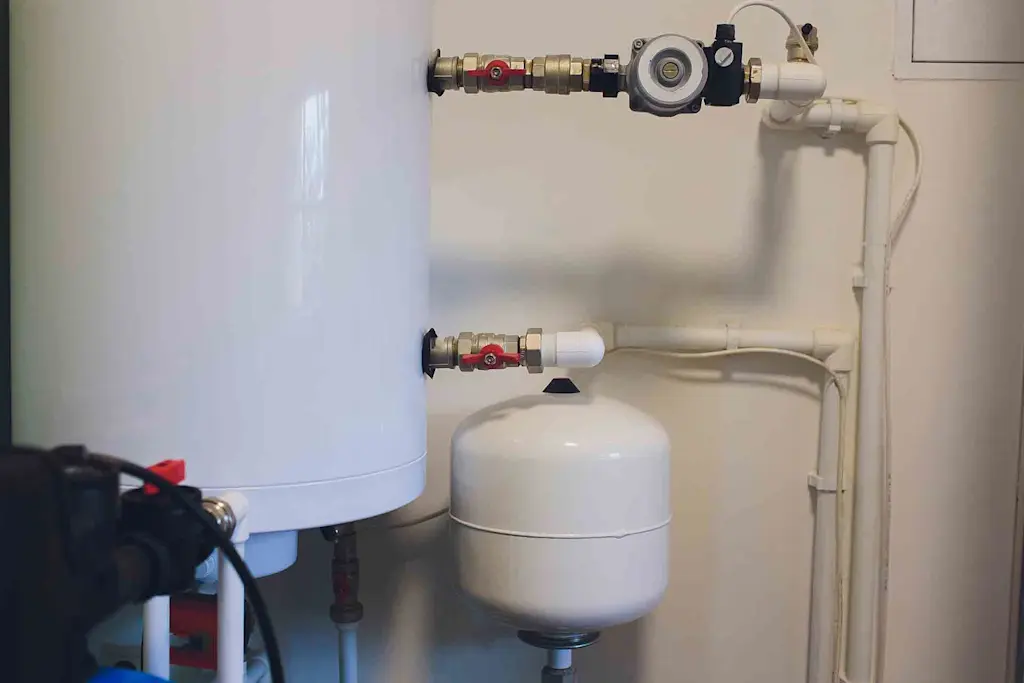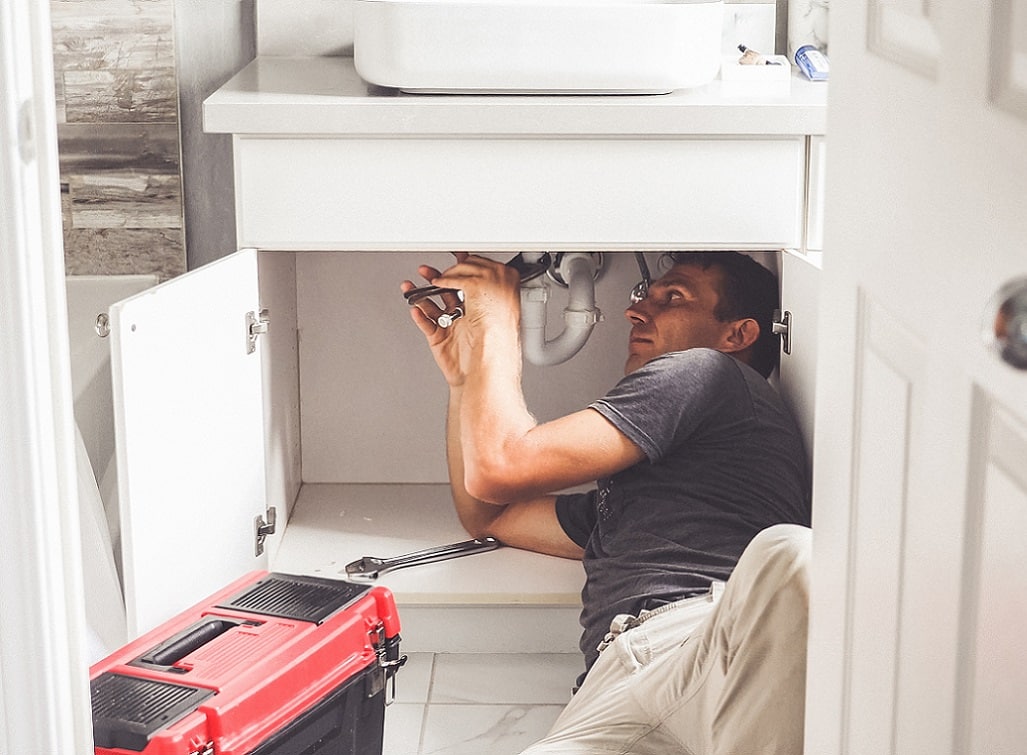Blog>Expert Advice>Leakage in water tank: What to do
Last updated: 30 August 2024
Leakage in water tank: What to do
A leakage in a water tank can damage your property and increase your water bills. Read on to find out common leak causes, what to do and repair costs. Don’t wait to fix a leaking water tank!

Signs of a leaking water tank
Are you concerned that your water tank has a leak? Ignoring this problem can lead to expensive damage. We recommend getting the leak fixed as soon as possible.
If you are not sure if a leak is coming from your water tank, here are some telltale signs to look out for:
Damp patches and water stains – These will be visible around the base of a leaking water tank. Damp patches and stains can also appear on the ceiling beneath the tank
Dripping and gurgling noises – Any unusual noises coming from your water tank could be the result of a leak
Low water pressure – An unresolved leak can cause water pressure to drop
Mould and mildew – Leaks can create a damp environment, leading to mould and mildew growth
More expensive water bills – Your water bills will increase if your water tank is leaking
Why is my water storage tank leaking from the bottom?
Water tanks can spring a leak in several areas. The most common places include:
Base of tank
Top of tank
Near the expansion tank
Inside the water tank
The location of the leak will determine what type of repair work is needed.
A leak from the bottom of a water tank is typically caused by a loose drain valve, incorrect pressure, or a worn temperature-pressure relief valve.
Leaks near the expansion tank often mean this component needs to be replaced. In some circumstances, a pipe or pipe fitting connection may just need to be tightened on top of the expansion tank.
Is your water tank leaking from the top and not the bottom? A leak in this location is typically caused by a loose cold water inlet valve or a corroded anode rod.
If you can’t find the source of the leak, it may mean the leak is inside of the tank itself. This is usually caused by a build up of sediment in the tank, high pressure or a corroded anode rod.
What to do if a water tank is leaking
Have you spotted the telltale signs of a leaking water tank? Ignoring this problem can lead to expensive water bills and damage to your home.
Your water tank may need to be replaced entirely if you ignore a leak for too long.
Follow these steps as soon as you notice water tank leakage:
Find the source of the leak – Dry away any water and closely inspect the outside of the tank. You need to know where the leak is coming from before any repair work can begin
Turn off the tank’s power supply – Go to the circuit breaker and turn off the power supply to your water heater tank. For gas water tanks, rotate the gas shut-off valve to the ‘off’ position
Turn off the water supply – Don’t waste another drop of water. Turn off your water supply as soon as possible
Fix the problem – DIY repairs are possible, such as tightening loose valves or sealing small external leaks
Hire a professional – We recommend hiring a professional tradesperson to repair or replace any damaged parts. An experienced plumber will find the leak and safely fix the problem
A plumber can replace a corroded anode rod and damaged valves. Depending on the cause of the leak, the expansion tank or whole water tank may need to be replaced.
See the tradespeople we've checked and recommend for your job
Can you seal a leaking water tank?
It is possible to seal a leaking water tank yourself, but you must have the correct tools and products.
Make sure you choose the right sealant for your water tank material. Plastic, steel and concrete water tanks will all need to be sealed with different sealant products.
The costs of repeatedly sealing up a leak can build up over time. Patching up a leak is only a temporary fix. Other repair work may be needed to get to the bottom of persistent water tank leakage.
If sealing the leak doesn’t work, we recommend hiring a professional to repair or replace your water tank.
Find and book plumbers near me
Looking for local plumbers in your area? A quick search for 'plumbers near me' online and the options can feel overwhelming. Let Checkatrade take out the guesswork by searching and booking using our free directory instead.
What are the dangers of a leaking water tank?
Ignoring a leaking water tank can lead to more serious problems in the future.
The risks and dangers of hot water tank leakage include:
Flooding - Severe leaks can flood the room where the water tank is installed
Ceiling damage - Tanks installed upstairs can cause water damage to the ceiling below. If ignored, water damage can cause the ceiling to collapse
Scalding - Leaks can be the result of a malfunctioning water tank. If parts aren’t working as they should, the water temperature can increase, causing a scalding risk when running hot taps
Fire hazard - Malfunctioning electrically powered water tanks can overheat and put your home at greater risk of a fire
Gas leaks - If your water tank is powered by gas, leaks can be a sign of faulty parts. Malfunctions can lead to gas leaks and will need to be dealt with as soon as possible
Even small water tank leaks should not be ignored. We recommend contacting a professional as soon as you notice dripping water. Don’t wait for the problem to get worse.
Water tank leakage repair costs
The cost to repair a leaking water tank varies. The price will depend on which parts need to be replaced and the amount of time the repair work takes.
The average hot water tank repair cost in the UK is around £400.
Plumbers charge an average hourly rate of£50. Tradespeople charge different rates across the UK. We recommend contacting several local plumbers for quotes to find the best price in your area.
If the leak is severe and can’t wait to be fixed, you may need to pay an emergency plumber call out fee of £100.
Unfortunately, water tank leakage repair is not always possible. If the damage can’t be fixed, it will cost an average of £405 for a plumber to replace a water tank.
Key takeaways
Signs of a leaking water tank include damp patches, higher water bills, pressure and temperature fluctuations
Tightening loose valves and pipe connections can stop water tank leakage
A corroded anode rod or damaged expansion tank will need to be replaced
Ignoring a water tank leak can lead to ceiling damage, flooding, mould growth and scalding
A plumber can repair and replace damaged water tank components
The average price to repair a hot water tank is £400
Hiring a plumber with Checkatrade
Don’t ignore your leaking water tank. Add your postcode to the search box below and find a reputable plumber to fix the problem.
See the tradespeople we've checked and recommend for your job
See the tradespeople we've checked and recommend for your job



